- Home
- Stephanie Laurens
Secrets of a Perfect Night Page 5
Secrets of a Perfect Night Read online
Page 5
Adrian flipped her skirts back up again. His hands closed about her ankle—Abby sucked in a breath. He manipulated her foot carefully. “Does that hurt?”
“Ah…” Abby blinked, then managed, “Only a little.”
She couldn’t help but think of their feet sliding over each other, repetitively caressing in the dark warmth two nights before.
“Best keep a cold compress on it for an hour or two, just to be sure.” Agnes bustled to the door.
“No!” Abby did not want to be left alone with Adrian, in her bedroom, in her stockinged feet. She didn’t know whether she trusted him, but she certainly didn’t trust herself. “I’m not going to sit up here with a cold compress on my ankle.”
Adrian shrugged. “All right.”
He swooped, and she was in his arms being carried back downstairs. He carried her to the parlor, set her on the sofa, then shuffled an ottoman into position before her and set her injured foot upon it. Agnes hurried in with the compress; Adrian took it and molded it about her ankle.
“There.”
He nodded in approval, then sat beside her.
Abby said nothing—she didn’t trust herself not to scream.
After a pregnant moment, the reprobate beside her inquired, “Would you like your book?”
“Please.” The word nearly strangled her, but she got it out.
He rose, fetched her book, and handed it to her. She accepted it with a nod, opened it, and started to read.
He resumed his seat beside her—and watched.
Abby had intended to sulk for the rest of the evening, but when, after dinner, Adrian discovered her chess set and challenged her to a match, she forgot. The fact that her ankle had not swelled and she was therefore back on her own slippered feet and no longer consigned to being carried by him on a regular basis contributed considerably to her improved equilibrium.
The fact that she beat him twice and lost only once completed her recovery.
They retired for the night in perfect accord. She came down the next morning in her usual sunny and equable frame of mind.
“How did you come to be living here?” Adrian asked as she joined him at the breakfast table. “You didn’t say.”
“Bryan married.” Abby paused to take a sip of tea.
Bryan was Abby’s older brother; Adrian remembered him, but they had never been friends. Bryan was younger, and much more straitlaced, than he.
“His wife’s name is Ester—of the Dorset Pooles. Shortly before the wedding, Great-aunt Threve died and left the cottage to me. It seemed the perfect solution—I didn’t want to stay at the Hall, forever under Ester’s feet.”
That, Adrian could understand. “So Bryan and Ester are at the Hall—”
“And their family—they have three girls.”
Sitting back, his coffee cup in hand, Adrian watched Abby butter a slice of toast. “So what do you do with your time? Still wander the moors looking for flowers?”
Abby nodded. “I do indeed. I still paint—I paint what I find, then…”
She trailed off; he caught her eye and lifted a brow.
She studied him, then shrugged. “I paint for the Royal Gardens at Kew—for their records. I’m the artist for Dartmoor—all the moor species.”
Adrian considered her, considered what she’d just revealed. Only the very best of botanical artists were invited to contribute to the records of the Royal Gardens. He sipped his coffee, watching her from over the rim of the cup. “I’d like to see your studio.”
Gushing wasn’t his style. She would have squirmed if he’d praised her, but he knew she would hear the sincerity in his voice. She tilted her head, still studying him, then nodded. “Yes, all right. I’ll take you up after breakfast. I want to check on my pigments, anyway.”
Half the attic had been converted into an airy studio, although presently the shutters were tight over the wide windows. While Abby poked at her pots, Adrian wandered the room, studying the sketches on the big tables, the finished paintings on the walls.
Seeing them, he would have guessed her prominence even had she not told him. The works were vibrant in color, elegant in form, and painstakingly detailed, executed with an unwavering eye for accuracy. He recognized various flowers. This, he thought, as he looked around, was what had become of the Abby he knew.
He’d always treated the moor as his private riding range, the wild country at one with his heart. He’d first started stumbling over Abby when she’d been six. Out on her pony, she’d be searching for wildflowers, for roots and bulbs. A grubby urchin, she’d often appeared, her hands streaked with dirt from where she’d scrabbled among rocks and boulders. But she was as fearless as he when it came to the moor, equally at home in its wildness.
Over the years, they’d met often, although they never made arrangements to meet. They’d see each other somewhere and stop to chat, to talk. Early in their acquaintance, Adrian had realized that Abby’s brother made fun of her obsession. Her parents ignored it. He had simply accepted it as part of the Abby he knew.
And here she now was, one of the select few contributing to the records of the Royal Gardens.
He couldn’t have felt more proud of her if he’d taught her to paint himself. Turning, he caught her watching him, and smiled. “It’s truly impressive, Abby.”
She was pleased—he could see it in her eyes, in the smile that curved her lips. She shrugged and set aside the pot she’d been cleaning. “I enjoy it.”
They went downstairs. As one, without need for any words, they headed for the front door. Adrian opened it—they looked out—he shut it quickly. Their eyes met; they both grimaced.
A raw wind was blowing, laying a coating of fine ice on the snow. There was no sign of any thaw. Leaving the kitchen to Agnes, Bolt, and Tom, they retreated to the parlor. They spent the rest of that day, and the next, snug in its warmth, reading, playing chess, talking, remembering, making plans for Bellevere.
Over the last, Abby was reticent. To her mind, he should be making such plans with the lady he was preparing to marry. She was tempted to ask outright who that lady was, but her courage failed her. The Adrian who sat beside her on the sofa was not the same Adrian of long ago. He had changed—he was certainly more complicated. And definitely more dangerous, especially to her equanimity.
“I haven’t been to Bellevere since your father’s funeral, so I really can’t tell you any more than you know yourself.”
“But you must meet the Crochets in the village—I’m sure Mrs. Crochet must bewail the conditions.”
“What she bewails is the fact the house isn’t used—I’ve never heard her say anything about it falling apart.” Abby waited only a heartbeat before saying, “Actually, there was something I meant to ask—you mentioned yesterday that Farnsworth has had another book published. Have you read it?”
She’d discovered he read extensively, even more than she. She’d give her eyeteeth to have the free run of his library. In lieu of that, she picked his brains, giving her endless topics with which to distract him.
On the fifth day after the blizzard, the temperature rose. Tom was out early clearing the front path. Millie Watkins arrived midmorning with the news that the village was stirring. Abby was therefore not surprised when she glimpsed the Reverend Mr. Felix Bosworth picking his way up the front path.
She opened the door and waved him in. “Good morning, Mr. Bosworth. Out checking your flock?”
“Indeed, indeed, my dear Miss Woolley.” After stamping his shoes free of snow, Bosworth stepped over the threshold. A man of average height, somewhat corpulent, with thinning dark hair brushed across his balding pate, he took Abby’s hand between his and beamed at her. “I came here as soon as I heard the way was clear. I could not possibly know peace until I assured myself that you and your dear aunt were in good health.”
“On that score, I can set your mind at rest.” Retrieving her hand, Abby shut the door and gestured to the parlor, unable to stop herself from adding, “It was only a
n average blizzard—we get them every year.”
“Indeed, indeed.” Mr Bosworth had been the incumbent of the small village church for three years, so could hardly claim ignorance. He bestowed an unctuous smile on Abby as he followed her into the parlor. “But with two delicate ladies living alone, you know, one always has to wonder…”
Whatever it was Mr Bosworth had wondered, the thought was dispelled—thrown to the winds—when his protuberant eyes alighted on the lounging male figure slowly coming to his feet, leaving the small sofa where he’d been sitting close by Abby.
Abby fought to hide a smile. Since retrieving his case, Adrian had been gracing the house dressed to the nines, the epitome of a stylish London gentleman—a rakish, dangerous, exceedingly handsome one. When, goaded by the effect his appearance was having on her, she’d twitted him over it, he’d informed her he’d come straight from a house party and his town rig was the least elegant attire he had with him. That had shut her up. She was quite certain she didn’t need to see him in evening dress.
His appearance had apparently robbed Mr. Bosworth of speech, which was nothing short of amazing. Mouth opening and closing, the reverend simply stared.
Adrian regarded him impassively, then one brow slowly rose.
Abby stepped into the breach. “Mr. Bosworth, allow me to introduce Viscount Dere. He was on his way to Bellevere when the storm struck, and took refuge here with us.” To Adrian she said, “The Reverend Mr. Bosworth.”
“Dere? Oh!” The slight hesitation before Mr. Bosworth offered his hand declared he’d heard the stories. He smiled insincerely when Adrian shook his hand, then he looked about. “Your aunt, Miss Woolley?”
Abby looked about, too. “She was around…” Now she thought of it, Esme had been playing least in sight for the last few days. “I think she just stepped up to her room—”
As if on cue, Esme rushed in, waving her crochet. “Found it—oh! Good morning, Mr. Bosworth. Is the way clear then?”
“Indeed, indeed, dear lady. Why…”
For the next twenty minutes, Mr. Bosworth entertained them with details of all in the village. He made frequent references to his hope that the thaw would be sufficiently advanced to permit of a good attendance at Sunday service. For some reason, he glanced at Dere when making this pronouncement; Abby was at a loss to understand the reverend’s point. Adrian, as far as she could tell, was bored.
When it became clear that Mr. Bosworth was not about to take his leave, Esme surrendered and invited him to lunch. Esme claimed the reverend’s arm into the dining room. Abby, following with Adrian, shook his arm and whispered, “Behave yourself.”
He raised his brows. “I thought I was.”
“You have been—just keep doing so.” As they entered the room, she added, “He’s not up to your weight.”
That got her a smile—one of those slight lifts to the ends of his long lips that made her knees go weak. She was grateful when he handed her to her chair.
The meal passed uneventfully. As it drew to a close, Mr. Bosworth seemed to suddenly recollect the time.
“Dear me, I must be on my way.”
He looked at Abby as he rose; perforce, she laid aside her napkin and rose, too. “I’ll see you out, sir.”
Esme made her farewells with ill-concealed relief. Across the table, Adrian inclined his head.
Abby led the way into the front hall. Opening the door, she held out her hand.
Bosworth grasped it a little too fiercely for her liking.
“My dear, I must speak. Innocent as you are, I’m sure you’re unaware, but it really will not do for Dere to be residing under your roof. No, no—you must tell him to be on his way at once. Now the way is clear—”
“Mr. Bosworth.” Abby neither raised her voice nor drew herself up, but her tone had Bosworth swallowing the rest of his speech. Retrieving her hand, she paused, then said, “I should perhaps inform you that I have known Dere all my life. I am perfectly au fait with his reputation—I doubt there’s a soul in this village who is not. Be that as it may, I know Dere better than anyone else in Widecombe”—Abby thanked her stars she didn’t blush readily—” and I can assure you I stand in no danger from him. Dere’s a gentleman born and bred, and has absolutely no designs on me.”
Mr. Bosworth opened his mouth; Abby silenced him with an upraised finger. “I am telling you this because I realize you have not lived here long enough to know the whole truth, and I wish you to understand that neither I nor my aunt will tolerate any aspersions being cast upon his lordship’s character. Do I make myself plain?”
With no alternative left but retreat, Bosworth made his with soothing words and promises that he quite saw and understood. With a last observation that her attitude to his lordship reflected highly on her character, Bosworth took himself off.
Abby stood at the door and watched him leave.
From the shadows of the dining room doorway, Adrian strolled forward. Abby glanced around as he neared, then looked back at the snowy landscape. All was still covered, all sounds hushed by the thick white blanket. Peace and deep silence spread over the moor, over the village.
Halting behind Abby, Adrian looked out over her head. After a moment, he lifted a hand and closed it on her shoulder, close by her neck. “You do realize,” he murmured, “that today will be our last day of peace?”
She’d stiffened at his touch, but he left his hand where it was, fingers gently gripping; gradually she relaxed. “It’s still too cold to melt—the roads will still be impassable tomorrow.”
“Perhaps.” Adrian studied her profile, then leaned closer so his breath brushed her ear. “But tomorrow will bring us a parade of visitors. Care to wager on it?”
Abby glanced around and briefly met his eyes. “I would never be so foolish as to wager with you.” Stepping back, she closed the door; his hand fell away. She turned to the parlor. “How much did you hear?”
“All of it.”
Abby mentally cursed.
“Oh, and Abby?”
“Yes?” Stopping in the parlor doorway, she faced him. He’d been prowling at her heels, his long stride relaxed—they were suddenly very close. Dreadfully close—she couldn’t breathe.
All she saw was his eyes, intently and very deliberately locked on hers.
“You lied.”
A moment went by; Abby felt her heart beat once, twice. Then his finger touched her cheek, stroked lazily down, touched the corner of her lips, then boldly traced the lower—that broke the spell. She blinked. His lips lifted in that lazy, intensely provoking smile of his, then he stepped past her and continued into the room.
Three
HOW—IN WHAT WAY—had she lied?
The question drove Abby mad. She replayed her lecture to Bosworth countless times through the rest of that day and the night that followed. Midmorning arrived and she still had no idea where she’d erred, but given the nature of the three clear statements she’d made to Bosworth, she was not about to ask Adrian to explain.
She’d said she knew him better than anyone else in Widecombe; Adrian would have known precisely in what degree she had meant. It was, she supposed, possible that he’d had some other local liaison in his wild early days, although she couldn’t imagine with whom. But even if he had, he would never have alluded to it, much less told her. Adrian did not speak of his conquests—that she knew for a fact.
So if it wasn’t over that that she’d lied…
She’d also stated that she stood in no danger from him, and that he had absolutely no designs on her.
Every time she tried to imagine that one of those statements might be false, her mind shut down—refused to cooperate, refused to credit the thought enough to even think it.
As distractions went, Adrian’s latest effort was a gem. Not even the arrival of Mrs. Tolliver and her three giggling daughters could compete. Although present in the parlor, Abby left the conversation largely to Esme—and left her tormentor to fend for himself.
Serve hi
m right.
Despite his idly impassive countenance and easy, charming air, Adrian was well aware of Abby’s mood. More than aware of her distraction. Ever since his quiet words—his unintended revelation—he’d behaved himself, at considerable cost to his never-very-amenable temper.
He hadn’t intended to put a bee in Abby’s bonnet—he hadn’t intended to speak at all, not yet, not while he was residing under her roof. Yet as so often occurred when Abby was involved…she was the only woman he had ever met who could make him do things he did not intend doing.
“I expect, my lord, that you’ll be keen to repair to London after this weather, so bitter as it’s been.”
The eldest Miss Tolliver leaned close as if to impress him with her overabundant charms; Adrian reminded himself that pointedly shifting his gaze to Abby’s much more elegant figure would not advance his cause. “No,” he said, and left it at that.
The Tollivers left soon after, to be replaced by Mr. and Mrs. Heskel and their son and daughter. They, in turn, were replaced by Sir Winston Smythe, who rode in from his distant manor to check on Abby and Esme. He knew Adrian of old and conversed in bluffly genial fashion, all the while flicking glances between Abby and her unexpected guest.
“I told you so,” Adrian whispered as, Sir Winston gone, he followed Abby in to lunch.
She threw him a look but did not deign to answer.
They had barely risen from the table when the front doorbell pealed again.
“I can’t tell you in what high regard we all hold Miss Woolley.” Mrs. Pomfret, widow of the late Reverend Pomfret, fixed Adrian with basilisk eyes. “How we would go on without her sound advice, I cannot imagine—of course, we all hereabouts would be exceedingly distressed were any misfortune to befall her.”
“Indeed?” Adrian infused the word with the utmost boredom and smiled, distantly charming, even though his temper was wearing thin. Mrs. Pomfret’s was the sixth thinly veiled warning to him to stay away from Abby. He’d received three in the last hour—even for him, a record. The impulse to explain, with suitable emphasis, that it wasn’t Abby who stood in any danger from him grew, but for Abby’s sake, he nodded urbanely and moved on.

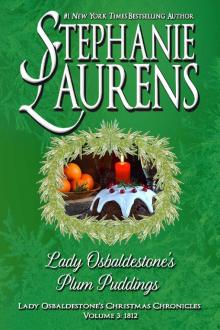 Lady Osbaldestone’s Plum Puddings: Lady Osbaldestone’s Christmas Chronicles Volume 3
Lady Osbaldestone’s Plum Puddings: Lady Osbaldestone’s Christmas Chronicles Volume 3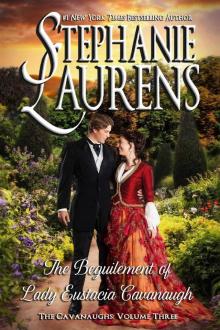 The Beguilement of Lady Eustacia Cavanagh: The Cavanaughs Volume 3
The Beguilement of Lady Eustacia Cavanagh: The Cavanaughs Volume 3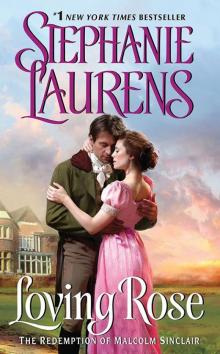 Loving Rose: The Redemption of Malcolm Sinclair (Casebook of Barnaby Adair)
Loving Rose: The Redemption of Malcolm Sinclair (Casebook of Barnaby Adair)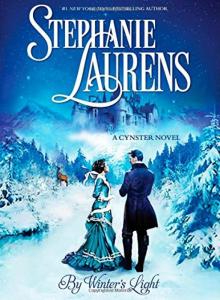 By Winter's Light
By Winter's Light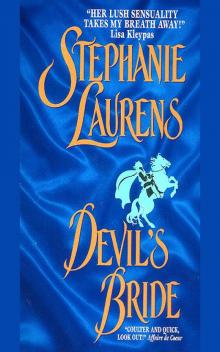 Devil's Bride
Devil's Bride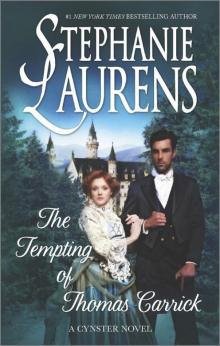 The Tempting of Thomas Carrick
The Tempting of Thomas Carrick![Cynster [22.00] A Match for Marcus Cynster Read online](http://i1.bookreadfree.com/i/03/16/cynster_[22_00]_a_match_for_marcus_cynster_preview.jpg) Cynster [22.00] A Match for Marcus Cynster
Cynster [22.00] A Match for Marcus Cynster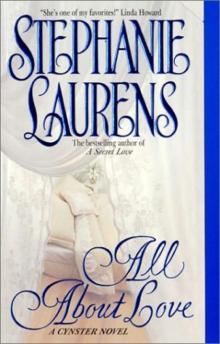 All About Love c-6
All About Love c-6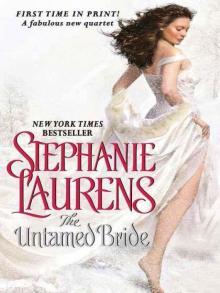 Cobra 01 The Untamed Bride
Cobra 01 The Untamed Bride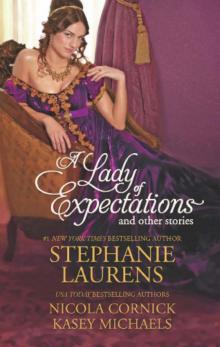 A Lady of Expectations and Other Stories
A Lady of Expectations and Other Stories By Winter's Light_A Cynster Novel
By Winter's Light_A Cynster Novel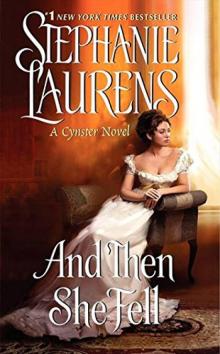 And Then She Fell
And Then She Fell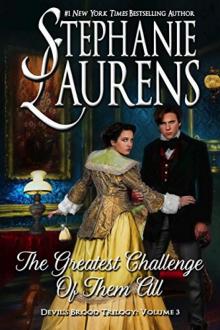 The Greatest Challenge of Them All
The Greatest Challenge of Them All The Edge of Desire
The Edge of Desire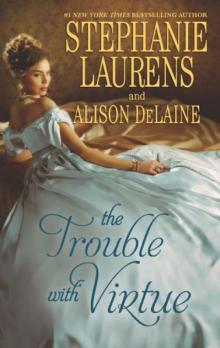 The Trouble With Virtue: A Comfortable WifeA Lady by Day
The Trouble With Virtue: A Comfortable WifeA Lady by Day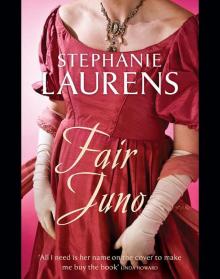 Fair Juno
Fair Juno THE LEGEND OF NIMWAY HALL: 1750 - JACQUELINE
THE LEGEND OF NIMWAY HALL: 1750 - JACQUELINE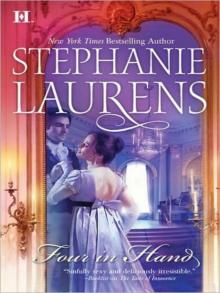 Four In Hand
Four In Hand The Reckless Bride
The Reckless Bride Stephanie Laurens Rogues' Reform Bundle
Stephanie Laurens Rogues' Reform Bundle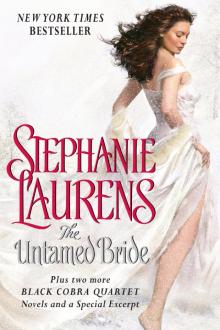 The Untamed Bride Plus Black Cobra 02-03 and Special Excerpt
The Untamed Bride Plus Black Cobra 02-03 and Special Excerpt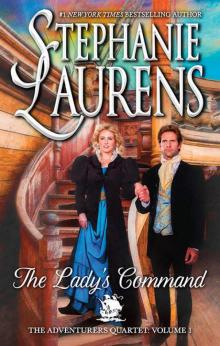 The Lady's Command (Adventurers Quartet #1)
The Lady's Command (Adventurers Quartet #1)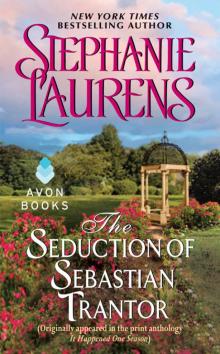 The Seduction of Sebastian Trantor
The Seduction of Sebastian Trantor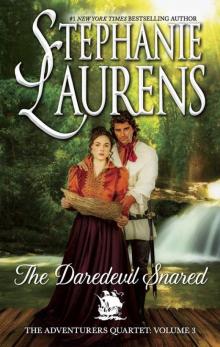 The Daredevil Snared (The Adventurers Quartet Book 3)
The Daredevil Snared (The Adventurers Quartet Book 3)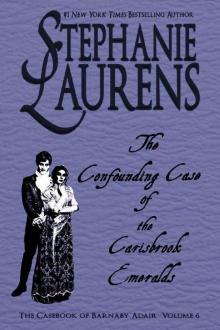 The Confounding Case Of The Carisbrook Emeralds (The Casebook of Barnaby Adair 6)
The Confounding Case Of The Carisbrook Emeralds (The Casebook of Barnaby Adair 6) Lord of the Privateers (The Adventurers Quartet)
Lord of the Privateers (The Adventurers Quartet)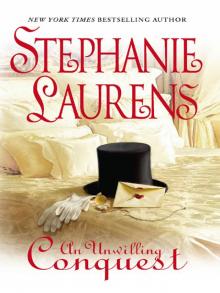 An Unwilling Conquest
An Unwilling Conquest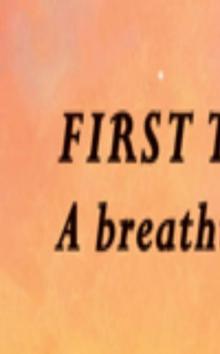 Brazen Bride
Brazen Bride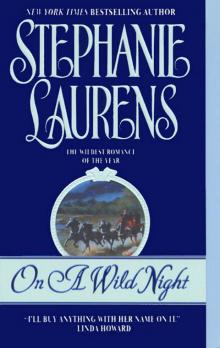 On a Wild Night
On a Wild Night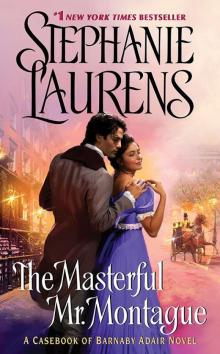 The Masterful Mr. Montague: A Casebook of Barnaby Adair Novel
The Masterful Mr. Montague: A Casebook of Barnaby Adair Novel Lord of the Privateers
Lord of the Privateers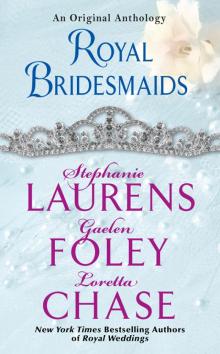 Royal Bridesmaids
Royal Bridesmaids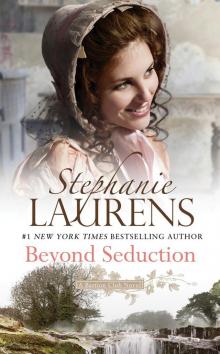 Beyond Seduction
Beyond Seduction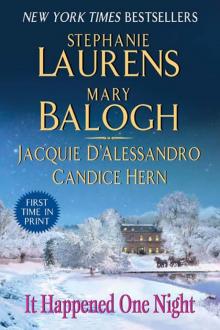 It Happened One Night
It Happened One Night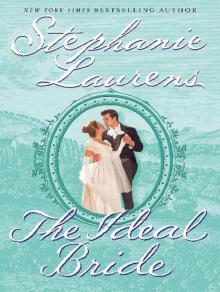 The Ideal Bride
The Ideal Bride The Promise in a Kiss
The Promise in a Kiss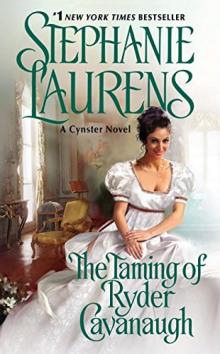 The Taming of Ryder Cavanaugh
The Taming of Ryder Cavanaugh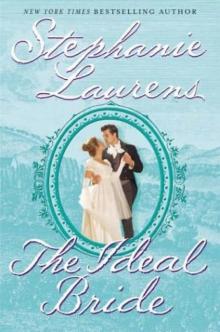 The Ideal Bride c-12
The Ideal Bride c-12 All About Love
All About Love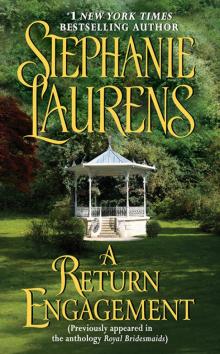 A Return Engagement
A Return Engagement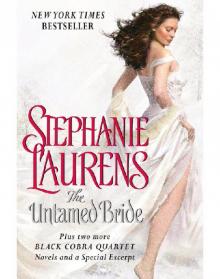 The Untamed Bride Plus Two Full Novels and Bonus Material
The Untamed Bride Plus Two Full Novels and Bonus Material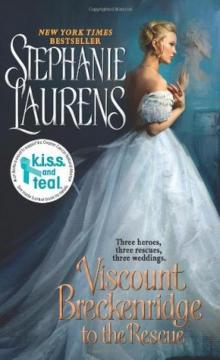 Viscount Breckenridge to the Rescue
Viscount Breckenridge to the Rescue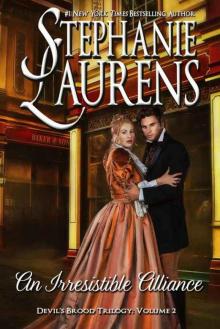 An Irresistible Alliance (Cynsters Next Generation Novels Book 5)
An Irresistible Alliance (Cynsters Next Generation Novels Book 5) The Daredevil Snared
The Daredevil Snared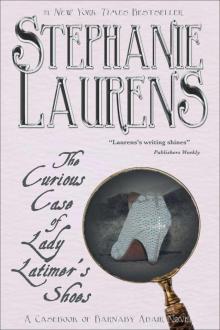 The Curious Case of Lady Latimer's Shoes: A Casebook of Barnaby Adair Novel
The Curious Case of Lady Latimer's Shoes: A Casebook of Barnaby Adair Novel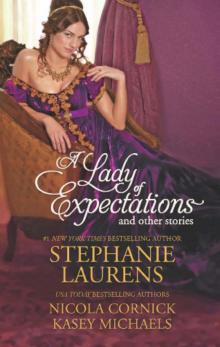 A Lady of Expectations and Other Stories: A Lady of ExpectationsThe Secrets of a CourtesanHow to Woo a Spinster
A Lady of Expectations and Other Stories: A Lady of ExpectationsThe Secrets of a CourtesanHow to Woo a Spinster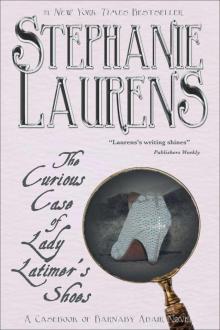 The Curious Case of Lady Latimer's Shoes: A Casebook of Barnaby Adair Novel (The Casebook of Barnaby Adair)
The Curious Case of Lady Latimer's Shoes: A Casebook of Barnaby Adair Novel (The Casebook of Barnaby Adair)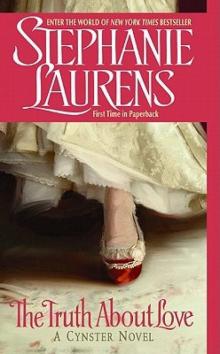 The Truth About Love
The Truth About Love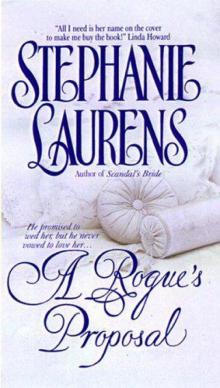 A Rogue's Proposal
A Rogue's Proposal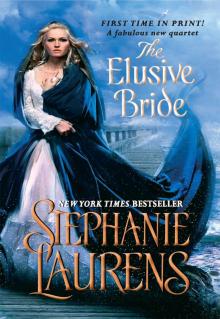 The Elusive Bride
The Elusive Bride The Perfect Lover
The Perfect Lover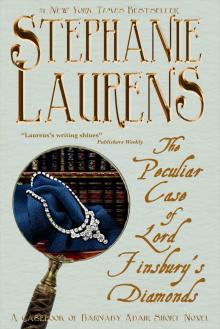 The Peculiar Case of Lord Finsbury's Diamonds: A Casebook of Barnaby Adair Short Novel
The Peculiar Case of Lord Finsbury's Diamonds: A Casebook of Barnaby Adair Short Novel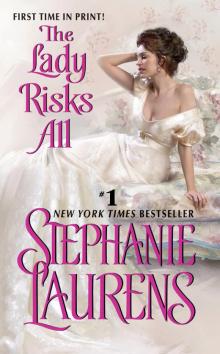 The Lady Risks All
The Lady Risks All The Murder at Mandeville Hall: The Casebook of Barnaby Adair: Volume 7
The Murder at Mandeville Hall: The Casebook of Barnaby Adair: Volume 7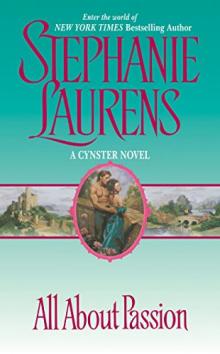 All About Passion
All About Passion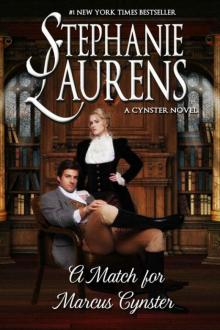 A Match for Marcus Cynster
A Match for Marcus Cynster By Winter's Light: A Cynster Novel (Cynster Special Book 2)
By Winter's Light: A Cynster Novel (Cynster Special Book 2)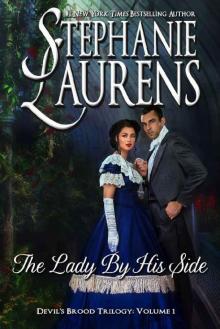 The Lady By His Side
The Lady By His Side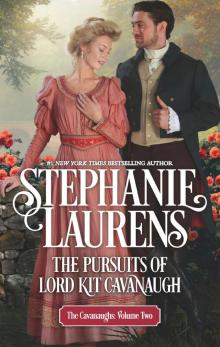 The Pursuits of Lord Kit Cavanaugh
The Pursuits of Lord Kit Cavanaugh Tangled Reins
Tangled Reins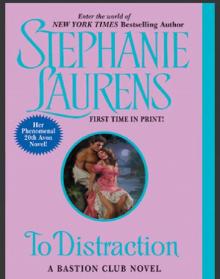 To Distraction
To Distraction A Rake's Vow
A Rake's Vow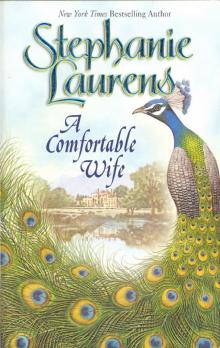 A Comfortable Wife
A Comfortable Wife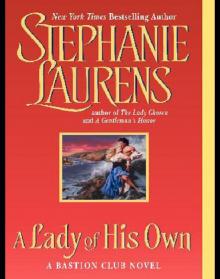 A Lady of His Own bc-3
A Lady of His Own bc-3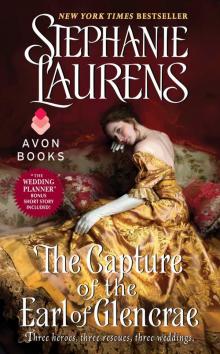 The Capture of the Earl of Glencrae
The Capture of the Earl of Glencrae Scandals Bride c-3
Scandals Bride c-3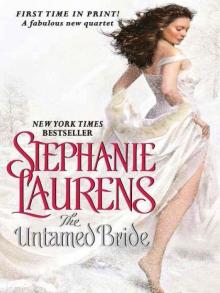 Untamed Bride
Untamed Bride The Brazen Bride
The Brazen Bride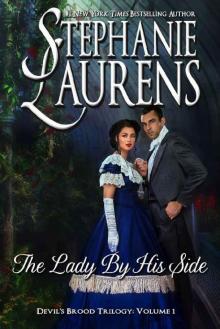 The Lady By His Side (Cynsters Next Generation Novels Book 4)
The Lady By His Side (Cynsters Next Generation Novels Book 4)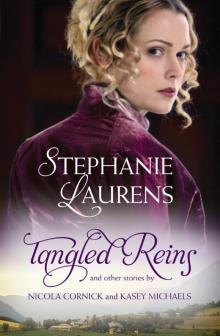 Tangled Reins and Other Stories
Tangled Reins and Other Stories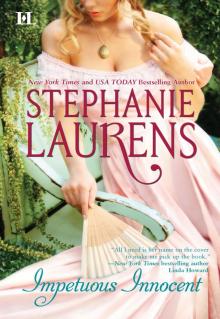 Impetuous Innocent
Impetuous Innocent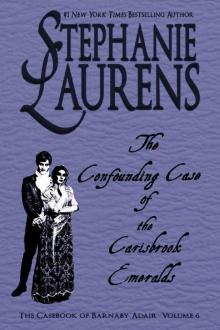 The Confounding Case Of The Carisbrook Emeralds
The Confounding Case Of The Carisbrook Emeralds Stephanie Laurens - B 6 Beyond Seduction
Stephanie Laurens - B 6 Beyond Seduction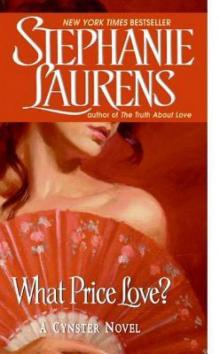 What Price Love?
What Price Love?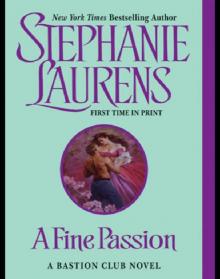 A Fine Passion
A Fine Passion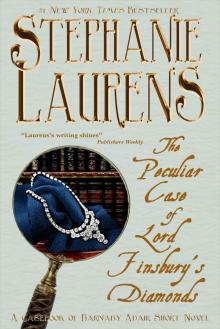 The Peculiar Case of Lord Finsbury's Diamonds: A Casebook of Barnaby Adair Short Novel (The Casebook of Barnaby Adair)
The Peculiar Case of Lord Finsbury's Diamonds: A Casebook of Barnaby Adair Short Novel (The Casebook of Barnaby Adair) Where the Heart Leads
Where the Heart Leads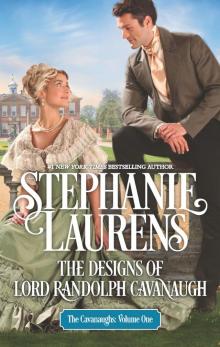 The Designs of Lord Randolph Cavanaugh
The Designs of Lord Randolph Cavanaugh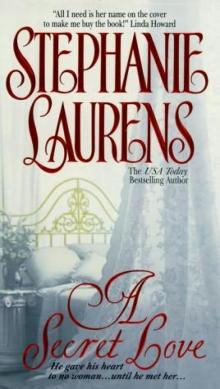 A Secret Love c-5
A Secret Love c-5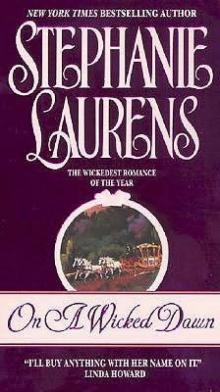 On a Wicked Dawn c-10
On a Wicked Dawn c-10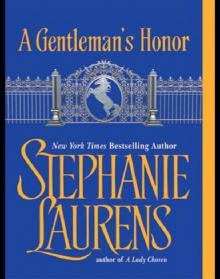 A Gentleman's Honor
A Gentleman's Honor THE LEGEND OF NIMWAY HALL_1750_JACQUELINE
THE LEGEND OF NIMWAY HALL_1750_JACQUELINE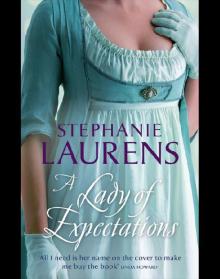 A Lady of Expectations
A Lady of Expectations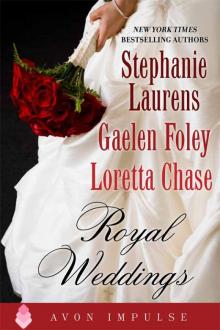 Royal Weddings: An Original Anthology
Royal Weddings: An Original Anthology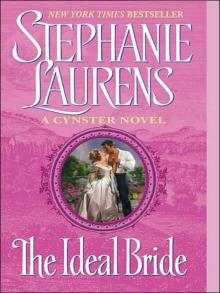 The Ideal Bride (Cynster Novels)
The Ideal Bride (Cynster Novels) Mastered by Love
Mastered by Love A Buccaneer at Heart
A Buccaneer at Heart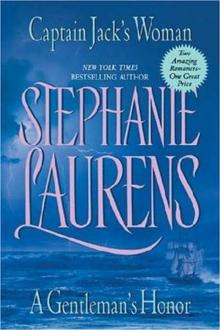 Captain Jack’s Woman / A Gentleman's Honor
Captain Jack’s Woman / A Gentleman's Honor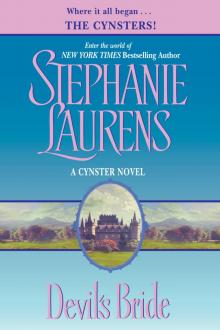 Devil's Bride with Bonus Material
Devil's Bride with Bonus Material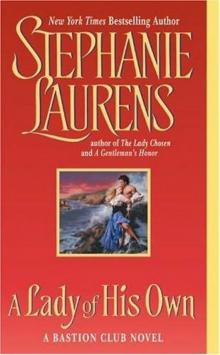 A Lady of His Own
A Lady of His Own A Secret Love
A Secret Love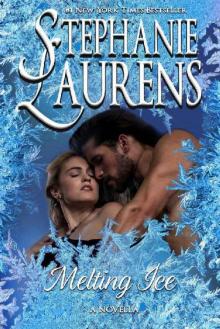 Melting Ice
Melting Ice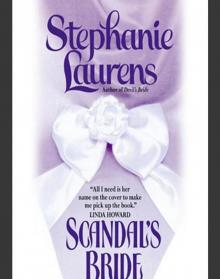 Scandal's Bride
Scandal's Bride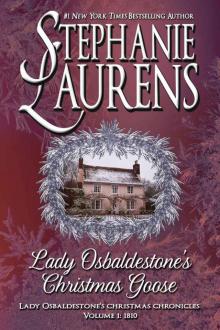 Lady Osbaldestone’s Christmas Goose
Lady Osbaldestone’s Christmas Goose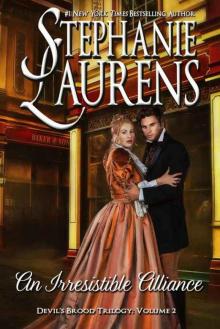 An Irresistible Alliance
An Irresistible Alliance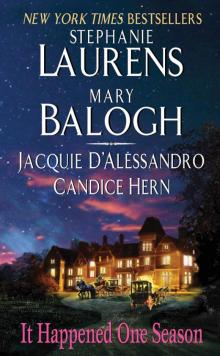 It Happened One Season
It Happened One Season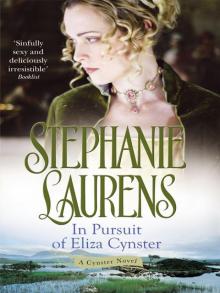 In Pursuit Of Eliza Cynster
In Pursuit Of Eliza Cynster Captain Jack's Woman
Captain Jack's Woman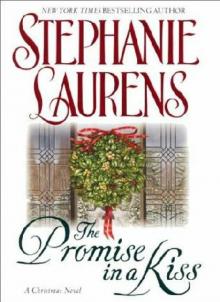 The promise in a kiss c-8
The promise in a kiss c-8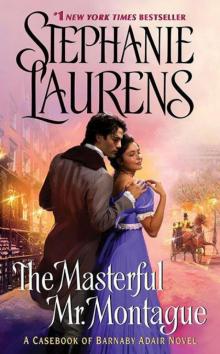 The Masterful Mr. Montague
The Masterful Mr. Montague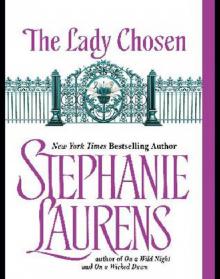 The Lady Chosen
The Lady Chosen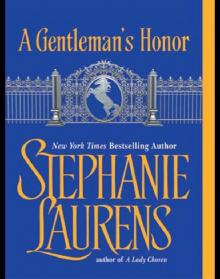 A Gentleman's Honor bc-2
A Gentleman's Honor bc-2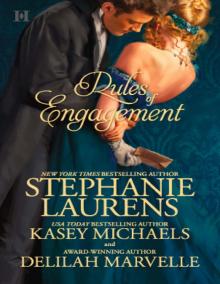 Rules of Engagement: The Reasons for MarriageThe Wedding PartyUnlaced (Lester Family)
Rules of Engagement: The Reasons for MarriageThe Wedding PartyUnlaced (Lester Family) Secrets of a Perfect Night
Secrets of a Perfect Night The Taste of Innocence
The Taste of Innocence On A Wicked Dawn
On A Wicked Dawn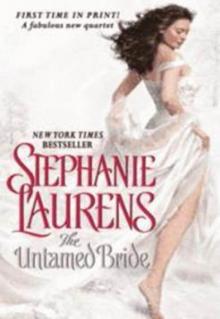 The Untamed Bride
The Untamed Bride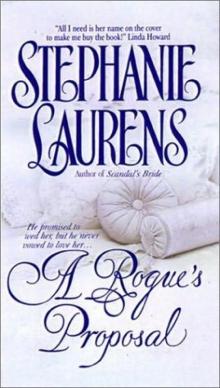 A Rogues Proposal c-4
A Rogues Proposal c-4 Rakes Vow c-2
Rakes Vow c-2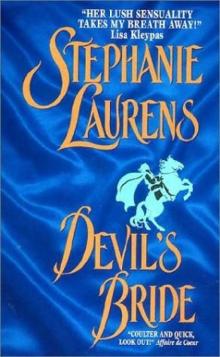 Devils Bride c-1
Devils Bride c-1 Hero, Come Back
Hero, Come Back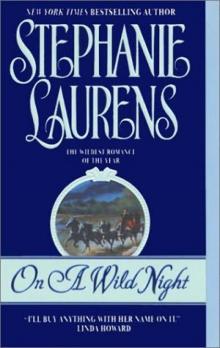 On a Wild Night c-8
On a Wild Night c-8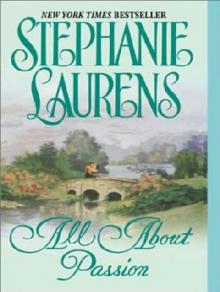 All About Passion c-7
All About Passion c-7